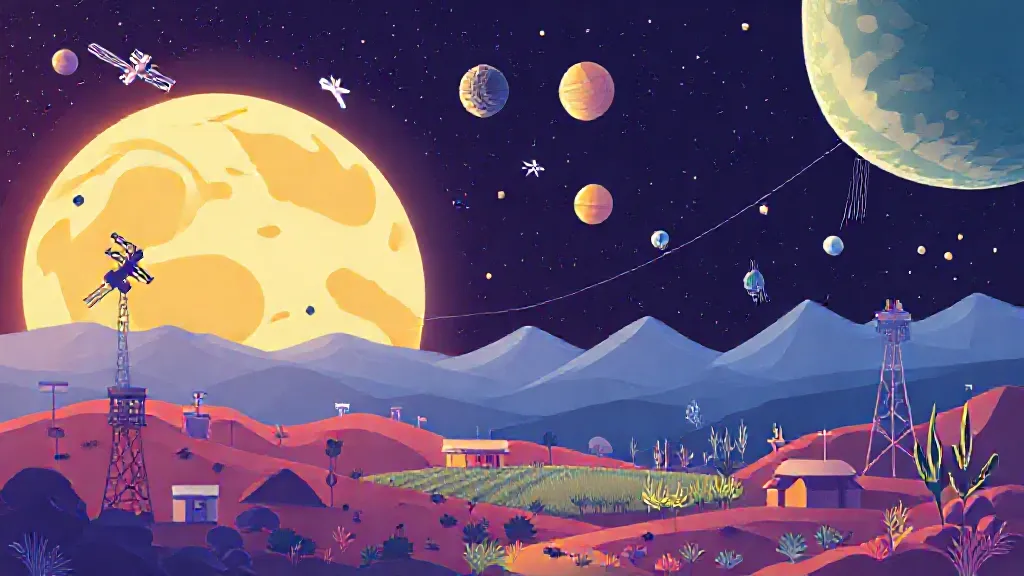Space technology, once confined to the realms of science fiction, has become an integral part of our daily lives. From communication systems to weather forecasting, the innovations derived from space exploration have significantly transformed how we live, work, and interact with our environment. This article delves into the various ways space technology impacts our everyday experiences, highlighting its significance and the underlying principles that make it possible.
Satellite Communication: A Global Connection
One of the most profound impacts of space technology is in the realm of communication. Satellite communication has revolutionized how we connect with others across the globe. Satellites in geostationary orbits facilitate television broadcasts, internet services, and phone communications, making it possible for people to stay in touch regardless of geographical barriers.
For instance, satellite phones provide connectivity in remote areas where traditional cellular networks are unavailable, proving essential during emergencies and natural disasters.
Weather Monitoring and Forecasting
Space technology plays a crucial role in meteorology. Satellites equipped with advanced sensors monitor weather patterns, track storms, and provide real-time data that is vital for accurate weather forecasting.
The National Oceanic and Atmospheric Administration (NOAA) utilizes satellite imagery to predict severe weather events, helping communities prepare for hurricanes, tornadoes, and other natural disasters. This capability not only saves lives but also aids in economic planning and disaster management.
GPS and Navigation: Revolutionizing Travel
The Global Positioning System (GPS), a product of space technology, has transformed the way we navigate our world.
Originally developed for military purposes, GPS is now a vital tool for civilians, enabling precise navigation for drivers, pilots, and even hikers. Applications like Google Maps rely on satellite data to provide real-time directions, traffic updates, and estimated arrival times, enhancing our travel experience and efficiency.
Environmental Monitoring and Disaster Response
Space technology is instrumental in monitoring the Earth's environment.
Satellites provide critical data on land use, deforestation, and climate change. Organizations like NASA and the European Space Agency use satellite imagery to track environmental changes, helping scientists understand the impact of human activity on the planet. Furthermore, during natural disasters, satellite data aids in assessing damage, coordinating relief efforts, and ensuring that aid reaches those in need promptly.
Agriculture and Food Security
The agricultural sector has also benefited immensely from space technology. Remote sensing satellites provide farmers with data on soil conditions, crop health, and weather patterns, allowing for more informed decision-making. Precision agriculture, which utilizes satellite data, helps optimize crop yields and reduce waste, contributing to food security and sustainable farming practices.
This technology is crucial as the global population continues to grow and the demand for food increases.
Scientific Research and Innovation
Space exploration has led to numerous technological advancements that find applications beyond their original intent. For example, materials developed for space missions have been adapted for use in medical devices, construction, and consumer products.
The research conducted in microgravity environments has also yielded insights into various scientific fields, including biology and materials science, fostering innovation that enhances our quality of life.
Health and Medicine: The Ripple Effect
The influence of space technology extends into healthcare as well. Techniques developed for monitoring astronauts' health in space have been adapted for use in hospitals on Earth.
Telemedicine, which gained prominence during the COVID-19 pandemic, draws on satellite technology to connect patients in remote areas with healthcare providers. Additionally, advancements in imaging technology from space research have improved diagnostic capabilities in medicine.
The Future of Space Technology in Daily Life
As we look to the future, the role of space technology in our daily lives is expected to grow even more significant.
Emerging technologies such as satellite internet, space-based solar power, and global monitoring systems promise to further enhance connectivity, sustainability, and our understanding of the planet. The ongoing exploration of Mars and beyond may also yield new technologies that could revolutionize life on Earth, creating a symbiotic relationship between space exploration and everyday living.
In conclusion, the impact of space technology on daily life is profound and multifaceted.
From improving communication and navigation to enhancing agriculture and healthcare, the innovations derived from space exploration have become indispensable. As we continue to push the boundaries of space technology, its influence on our lives will only increase, shaping a future that is more connected, informed, and sustainable.
